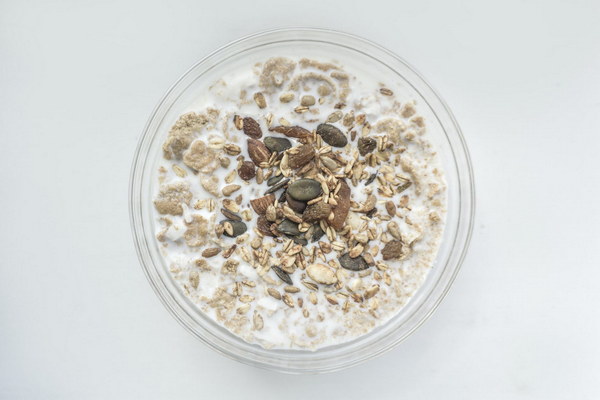Sipping to Health How to Brew Tea for Kidney Care in Winter
Winter, with its chilly temperatures and shorter days, can be a challenging season for maintaining kidney health. The cold weather can weaken the immune system, increase the risk of kidney inflammation, and exacerbate existing kidney conditions. One way to combat these issues is by incorporating tea, a traditional beverage known for its numerous health benefits, into your winter routine. In this article, we'll explore the best teas for kidney care during the winter months and provide tips on how to brew them to maximize their benefits.
The Best Teas for Kidney Care in Winter
1. Green Tea
Green tea is a powerhouse of antioxidants and polyphenols, which can help in reducing inflammation and improving kidney function. It contains a substance called epigallocatechin gallate (EGCG), which has been shown to have a protective effect on the kidneys.
How to Brew:
- Use one teaspoon of green tea leaves for every eight ounces of water.
- Boil the water and let it cool slightly before pouring over the tea leaves.
- Steep for 2-3 minutes and then strain the tea.
2. Black Tea
Black tea is another excellent option for kidney care, as it contains antioxidants that can help prevent kidney stones and improve overall kidney function.
How to Brew:
- Use one teaspoon of black tea leaves for every eight ounces of water.
- Boil the water, pour it over the tea leaves, and steep for 3-5 minutes.
- Strain the tea and serve warm.
3. Pu-erh Tea
Pu-erh tea, a fermented tea, is known for its ability to improve digestion and reduce cholesterol levels, both of which are beneficial for kidney health.
How to Brew:
- Use one tablespoon of Pu-erh tea leaves for every eight ounces of water.
- Boil the water and let it cool slightly before pouring over the tea leaves.
- Steep for 5-7 minutes, depending on the strength you prefer.

- Strain the tea and enjoy.
4. Hibiscus Tea
Hibiscus tea is a flavorful option that can help lower blood pressure, which is important for kidney health, as high blood pressure can strain the kidneys.
How to Brew:
- Use one tablespoon of dried hibiscus flowers for every eight ounces of water.
- Boil the water, remove from heat, and let the hibiscus flowers steep for 5 minutes.
- Strain the tea and add a sweetener of your choice if desired.
5. Dandelion Tea
Dandelion tea is a natural diuretic that can help flush out toxins from the kidneys and improve kidney function.
How to Brew:
- Use one teaspoon of dried dandelion leaves for every eight ounces of water.
- Boil the water and steep the dandelion leaves for 10 minutes.
- Strain the tea and drink warm.
Tips for Brewing Tea for Kidney Care
- Water Temperature: Always use freshly boiled water and let it cool slightly before brewing the tea. This ensures that the delicate compounds in the tea leaves are not destroyed by high temperatures.
- Tea Quantity: Use the recommended amount of tea leaves or flowers to ensure that the tea is potent enough to provide the desired health benefits.
- Steeping Time: The length of steeping time can vary depending on the type of tea. Longer steeping times can extract more flavor and beneficial compounds, but be careful not to oversteep, as this can make the tea bitter.
- Frequency: Aim to drink a cup of tea daily during the winter months to maintain kidney health.
- Avoid Caffeine: If you have a sensitive stomach or kidney condition, consider using decaffeinated tea or herbal teas that are caffeine-free.
By incorporating these kidney-friendly teas into your winter routine, you can enjoy both the warmth and the health benefits of a steaming cup of tea. Remember to consult with a healthcare professional before making any significant changes to your diet or tea consumption, especially if you have pre-existing kidney conditions.









